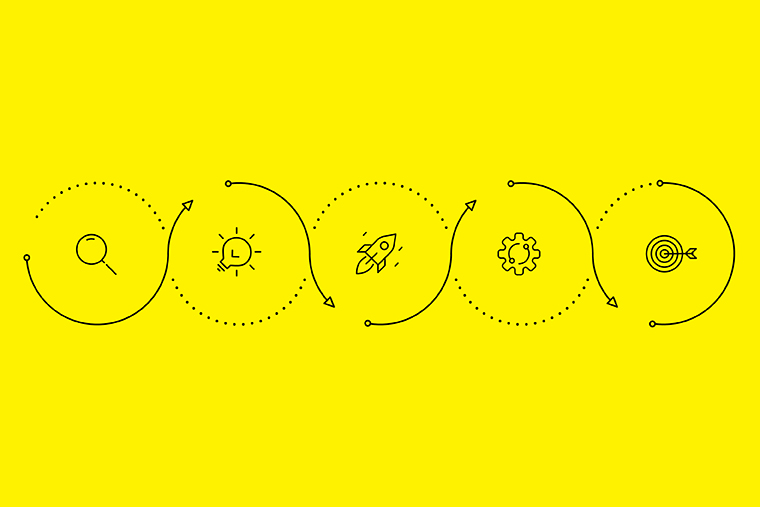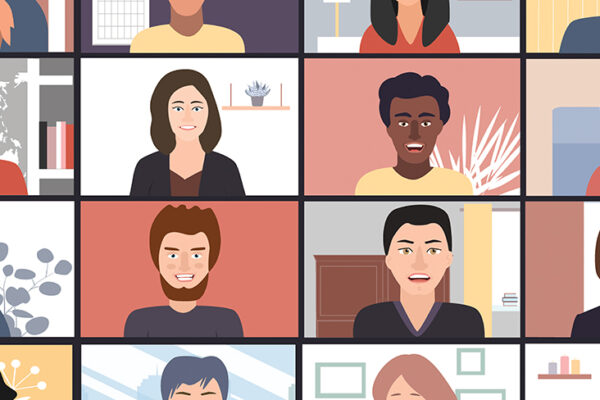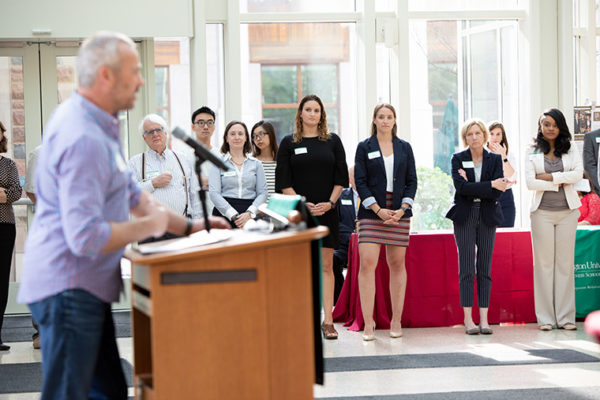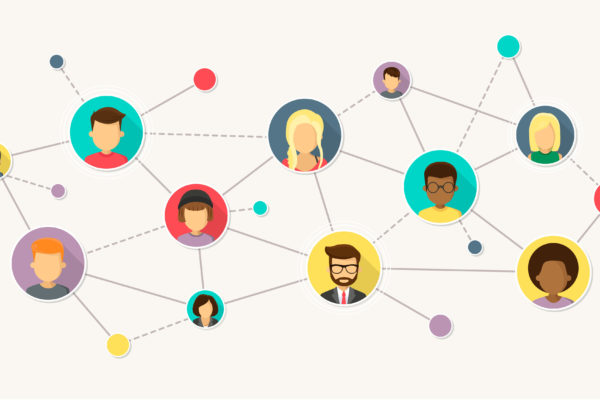How do you kick-start your professional life when the world suddenly turns upside down?
That question was on the minds of quite a few Washington University students, especially members of the Class of 2020, as the coronavirus began to grip the United States in March 2020. The spring semester typically brings a flurry of career-related activity, with students working to secure summer internships and soon-to-be alumni hoping to land their first post-graduate positions. But with companies instituting hiring freezes and implementing furloughs because of COVID-19, the “last one hired, first one fired” axiom now played out in real time as students grappled with dwindling internship opportunities, rescinded job offers and delayed start dates.
The Washington University Career Center has long been a lifeline for students seeking professional development resources, from individual mentoring to the popular Road Show series. Although in-person advising and events were no longer possible, the Career Center redoubled its efforts to help students navigate a newly unsteady economy. From March to July 2020, Career Center advisers increased outreach, including one-on-one virtual appointments and email advising, by 80% over the previous year. The Career Center also revamped its website to include new tools and encouraged students to maintain momentum by seeking out “micro-internships” or job-shadow programs, and by polishing resumes and LinkedIn profiles. As the pandemic persisted into the fall, the center continued to increase virtual programming by taking its career fairs online, partnering with peer institutions for a multischool networking event and hosting a weekly webinar for alumni from the Class of 2020.
The Career Center also tapped into one of WashU’s greatest assets — its loyal alumni — by ramping up promotion of the Hire-a-Bear Program. The program is a collaboration among the Washington University Alumni Association, the Parent and Family Engagement department, and the main Career Center and its counterparts in the Brown School, School of Law and Olin Business School. Together, they strive to connect students and recent graduates with paid internships and full-time positions submitted by alumni, parents and friends of the university. A winning proposition for everyone involved, the program gives those recruited a chance to gain professional experience while serving as university ambassadors to potential employers.
Not all alumni, however, were in a position to support students and recent graduates. When Olin Business School’s Weston Career Center reached out to Olin grads at the start of the pandemic, counselors found many at a professional crossroads and in need of guidance. Some alumni were searching for work after job losses, and others were pausing to re-evaluate their career goals.
To address these concerns, the Weston Career Center launched a monthly Power Lunch and Learn series. For each virtual session, the center invites speakers on topics ranging from career trends to salary negotiation and executive recruitment. Open to all Olin alumni, as well as students in the EMBA and PMBA programs, the series kicked off in September 2020 and will run through May 2021.
The center also found other ways to increase engagement, rolling out a seven-session virtual Transition Bootcamp to assist EMBA and PMBA students and alumni with career transitions. And because the career group coaching seminars for EMBA students are now held virtually, alumni from the program also are able to join the monthly sessions.
These efforts and many more happening across the university’s four career centers demonstrate innovation and flexibility in the face of incredible change. More important, they underscore that both students and alumni will always find a home, and a helping hand, in the WashU community.
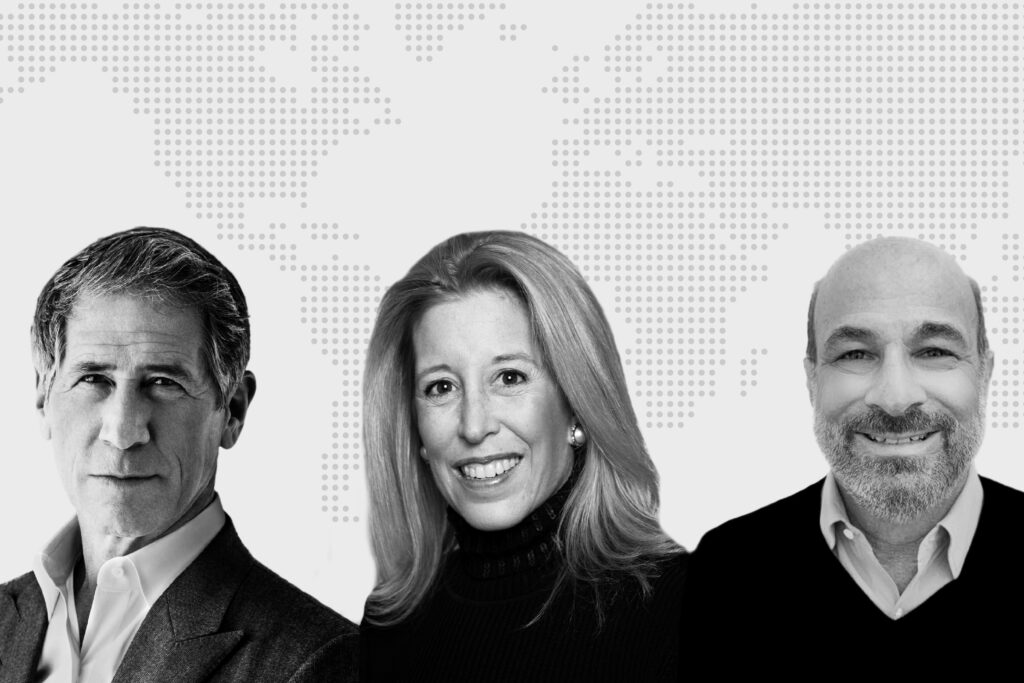
Transitioning from the classroom to the real world
The best way to learn is through experience, and that principle has guided the Alumni Association’s Alumni Career Externship (ACE) program since it started in 2009. As part of the program, Washington University alumni mentor students interested in learning more about their chosen fields.
Over several days of spring break, externs shadow their alumni hosts and gain invaluable insights into the day-to-day operations of a wide range of industries. Though the ACE program is now on hold due to the pandemic, three WashU alumni and longtime participants offer wisdom to students and recent graduates looking to explore career paths and establish professional relationships.
Jon Feltheimer, AB ’72
Chief executive officer at Lionsgate
I have three pieces of advice for my externs. First, be passionate about what you believe in, whether it’s a film, a television series or a good idea. Second, be resilient. I encourage my
externs — and everyone else at our studio — to be innovative and to take risks, and to not be afraid of failure. And finally, I advise them to look for the win-win solution to every problem or negotiation. People on both sides of the table should come away feeling that they have gained something of value.
Lisa Sharkey, AB ’80
Senior vice president and director of creative development at HarperCollins Publishers
Be in a constant state of curiosity. No matter what you think you are interested in, be open to varied possibilities. Also, you already have life skills, whether from working in a restaurant or holding a leadership position in your student group, that can be applied to the workplace. Make a list of them. And I believe the No. 1 skill is communication. I always advise students to write and send proper thank you notes. Do not be afraid to reach out. The only students who’ve become my interns have been the ones who’ve stayed in touch with me.
Matt Seiden, AB ’78
President and chief executive officer at Seiden Advertising
The more engaged a student is, the more our employees really want to invest time and energy into their externship. Self-motivation and a real interest in learning about communications — even if the student is not sure what they ultimately want to pursue — are key. The students who ask good questions and who are not only able to articulate their interests but also connect them to the work happening at Seiden tend to have much more fulfilling experiences.
